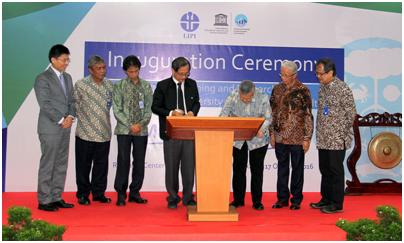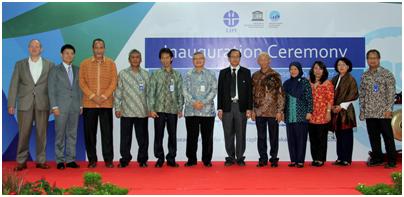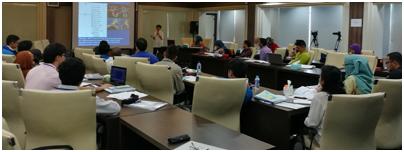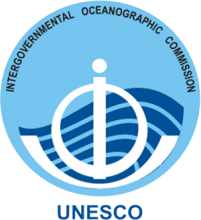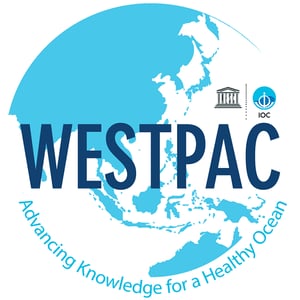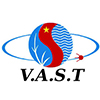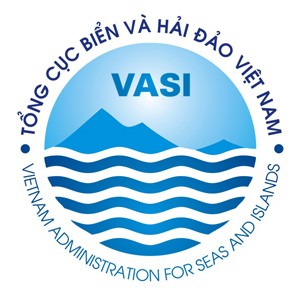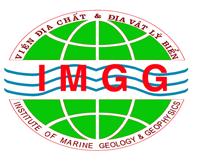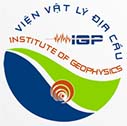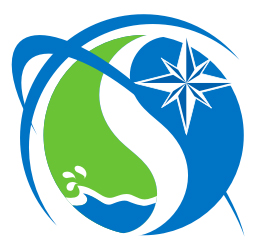More than one hundred representatives from Indonesian relevant ministries, research institutions, UNESCO and foreign embassies gathered at the Indonesian Sciences of Academy (LIPI) on 17 October 2016, celebrating the inauguration of the Regional Training and Research Center on Marine Biodiversity and Ecosystem Health (RTRC-MarBest).
With the best wishes expressed with a graceful Indonesian traditional dance, the inauguration was addressed respectively by Dr Zainal Arifin, Deputy Chair of LIPI, Prof Dr Ir Iskandar Zulkarnaen, Chairman of LIPI, Prof Dr Arief Rahman, Executive Chairman, Indonesian National Commission for UNESCO, Dr Vladimir Ryabinin, UNESCO/IOC Executive Secretary, and Dr Somkiat Khokiattiwong, UNESCO/IOC Vice Chair and IOC/WESTPAC Chair.
“The Regional Training and Research Center on Marine Biodiversity and Ecosystem Health (RTRC-MarBEST) will be of great significance in assisting all countries in the region to achieve the 2030 Agenda for Sustainable Development, particularly its Goal 14”, IOC Executive Secretary, Vladimir Ryabinin expected in his video address.
Shortly after the inauguration ceremony, a two-week long training course on Crustacean Taxonomy is being conducted at the MarBEST Center Building on the Pari Island, Jakarta, Indonesia from 17 to 29 October 2016, with the participation of more than 30 selected trainees from ten countries in the region. This training aims to enhance the capacity of young scientists for taxonomic research on tropical marine biota, especially for crustacean taxonomy, in view of the dramatic declining numbers of taxonomic specialists on specific organisms.
“If we consider the earth as a living organism, the ocean is equivalent to body fluid. Today the fluid is gradually losing its health due to pollution and the greenhouse gas effects.” Prof. Iskandar expressed “Today is the most historic day for Indonesia. The inauguration of Regional Training and Research Center on Marine Biodiversity and Ecosystem Health will bring hope to revive the program on capacity building not only for local researchers, but also for researchers of the Western Pacific region”.
The Western Pacific and its adjacent regions are of vast social and economic importance with over 60% of its population living in and relying economically on coastal areas. The ocean in the region is among the richest and most productive in the world. Meanwhile, as the region remains as the engine for global economy, humans, however, have put the ocean at risk of irreversible damage by unregulated exploration and development, increasing pollution, climate change and ocean acidification. As such, it is imperative to strengthen sound scientific research and systematic observations to underpin the sustainable governance of the ocean.
In order to build knowledge and capacity for sustainable development of marine and coastal resources, WESTPAC has been adopting an adaptive and self-driven approach to regional capacity development. WESTPAC initiated “IOC Regional Network of Training and Research Centers” with aim to improve regional capability and capacity on marine science in a sustainable and systematic manner, through the establishment of IOC Regional Training and Research Centers (RTRCs) in national oceanographic institutes or universities based on their scientific specializations. Once established, RTRC will provide regular provision of training and research opportunities to young scientists mainly from developing countries within and outside the region.
“The Regional Training and Research Center on Marine Biodiversity and Ecosystem Health (RTRC-MarBEST) will be of great significance in assisting all countries in the region to achieve the 2030 Agenda for Sustainable Development, particularly its Goal 14”, IOC Executive Secretary, Vladimir Ryabinin expected in his video address.
Shortly after the inauguration ceremony, a two-week long training course on Crustacean Taxonomy is being conducted at the MarBEST Center Building on the Pari Island, Jakarta, Indonesia from 17 to 29 October 2016, with the participation of more than 30 selected trainees from ten countries in the region. This training aims to enhance the capacity of young scientists for taxonomic research on tropical marine biota, especially for crustacean taxonomy, in view of the dramatic declining numbers of taxonomic specialists on specific organisms.
Source: iocwestpac.org


